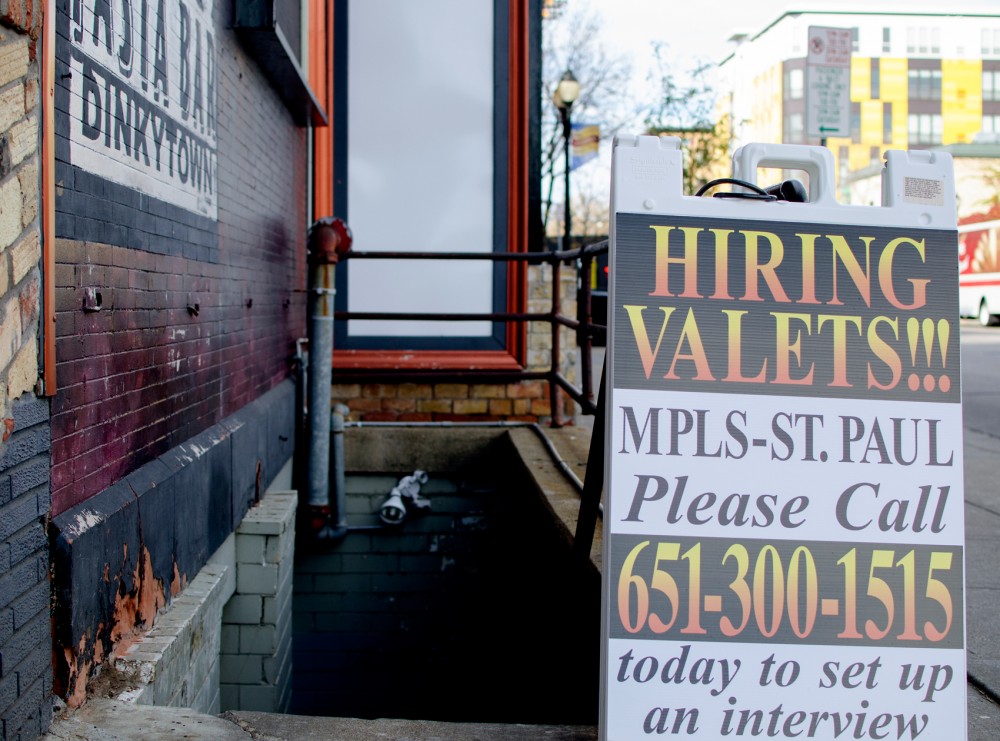For businesses near the University of Minnesota, hiring students can sometimes be problematic.
Difficulty balancing school and work can push some students to leave their jobs, but some say those who don’t have that option could be better equipped to learn important life skills.
Businesses near campus that mostly hire student workers need to be flexible around class schedules, Tony’s Diner owner Tony Nicklow said.
Because their turnover rate is high, Nicklow said, Tony’s accepts applications continuously.
“We always look to hire a few extra people because there are always people coming and going,” Nicklow said.
Still, he said new hires are told it’s mandatory to work during weekends and large sporting events because it’s the busiest time for the diner.
Blarney Pub and Grill owner Mike Mulrooney said it can be complicated at times to employ and schedule student workers.
“We tell every student we hire that their No. 1 priority is school,” Mulrooney said. “If they’re having difficulty with school, we give them temporary leave.”
Problems with scheduling shifts around class and extracurricular activities forced University theater arts and professional journalism junior Anna Crandall to leave her job at Cupcake bakery two weeks ago.
“I have so many big things in life that I’m balancing,” she said, “And I was giving them all half-effort, so I had to let one of them go.”
But students who work through college will often have to choose between a good grade and the extra cash, Student Conflict Resolution Center Ombudsman Fernando Rodriguez said.
“Students should be aware of what those trade-offs are,” he said. “Working a night shift instead of studying for a test could mean you don’t do well on that test, but you’ll get a paycheck.”
And for many University students, Rodriguez said, the decision to work isn’t a decision at all — it’s a necessity.
“When I was an undergraduate, I had to work and I was honest with myself about that reality,” he said. “I told myself it was my college experience and that there were people relying on me to be up and working each day.”
Still, according to the 2008 College Student Health Survey, there is no noticeable negative correlation between hours worked and college GPA.
Boynton Health Service Director of Public Health and Communications Dave Golden said students benefit from working about 10 hours a week.
“When you’re working on or off campus, you’re engaged with other people,” he said. “It also helps students with time management.”
Elementary education junior Talia Gurstel said she started working for event services at Student Unions and Activities in September.
The job allows her to take her mind off schoolwork, she said. However, when she needs time off, her bosses are understanding.
“I was scheduled to work one afternoon and I had a big midterm paper due,” she said. “I asked to leave early and they let me. It’s been great that they’ve been so understanding.”








